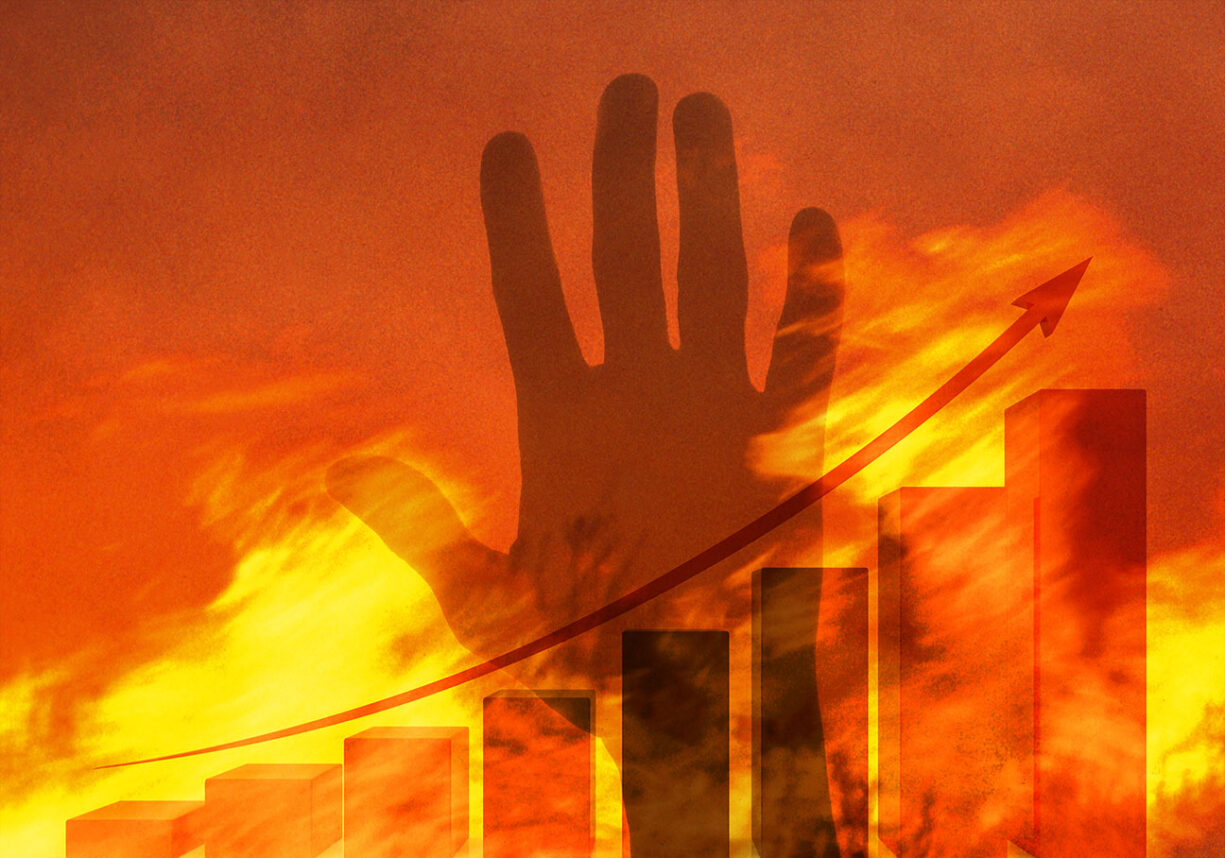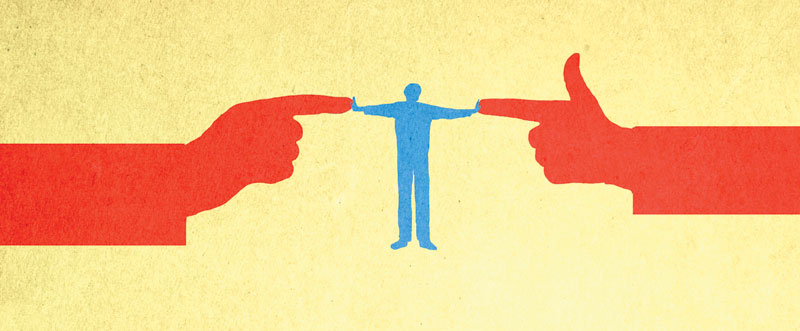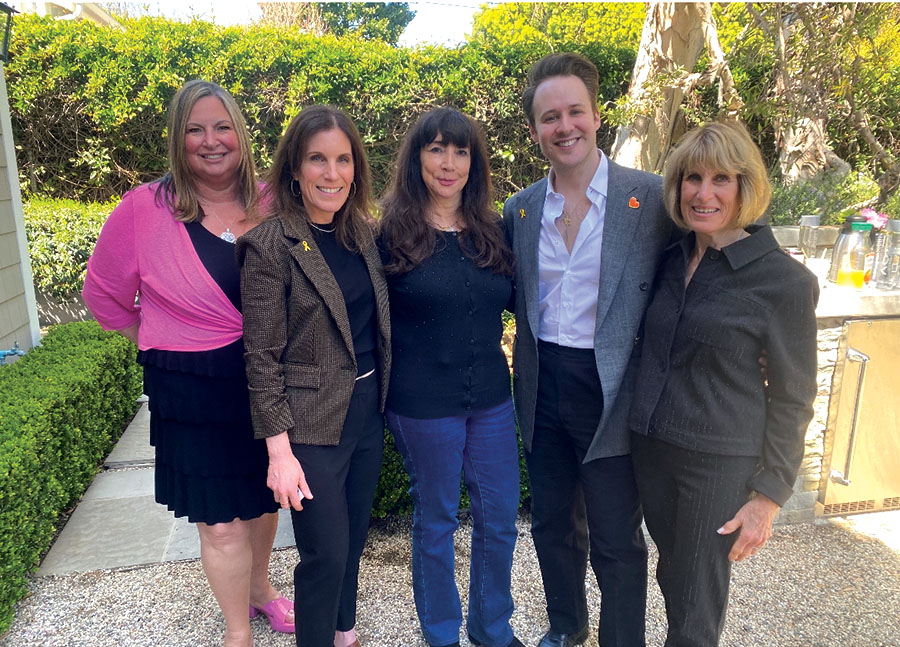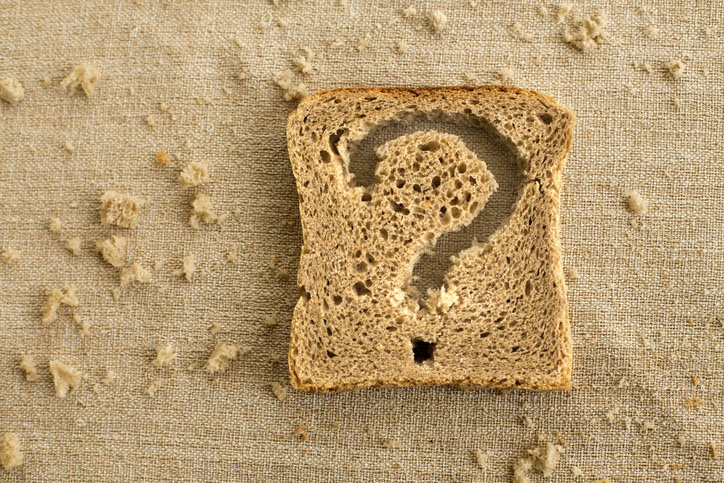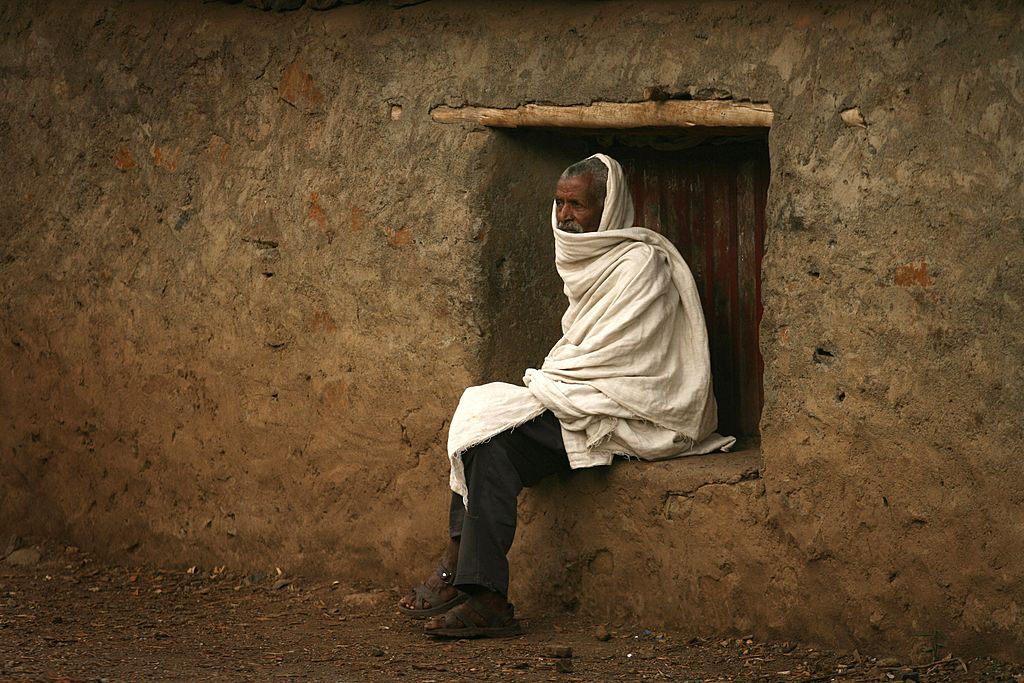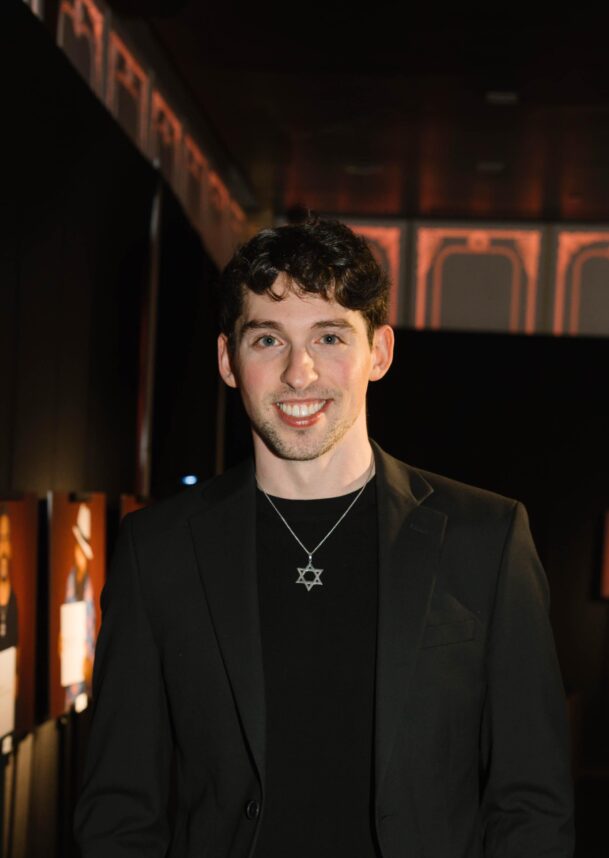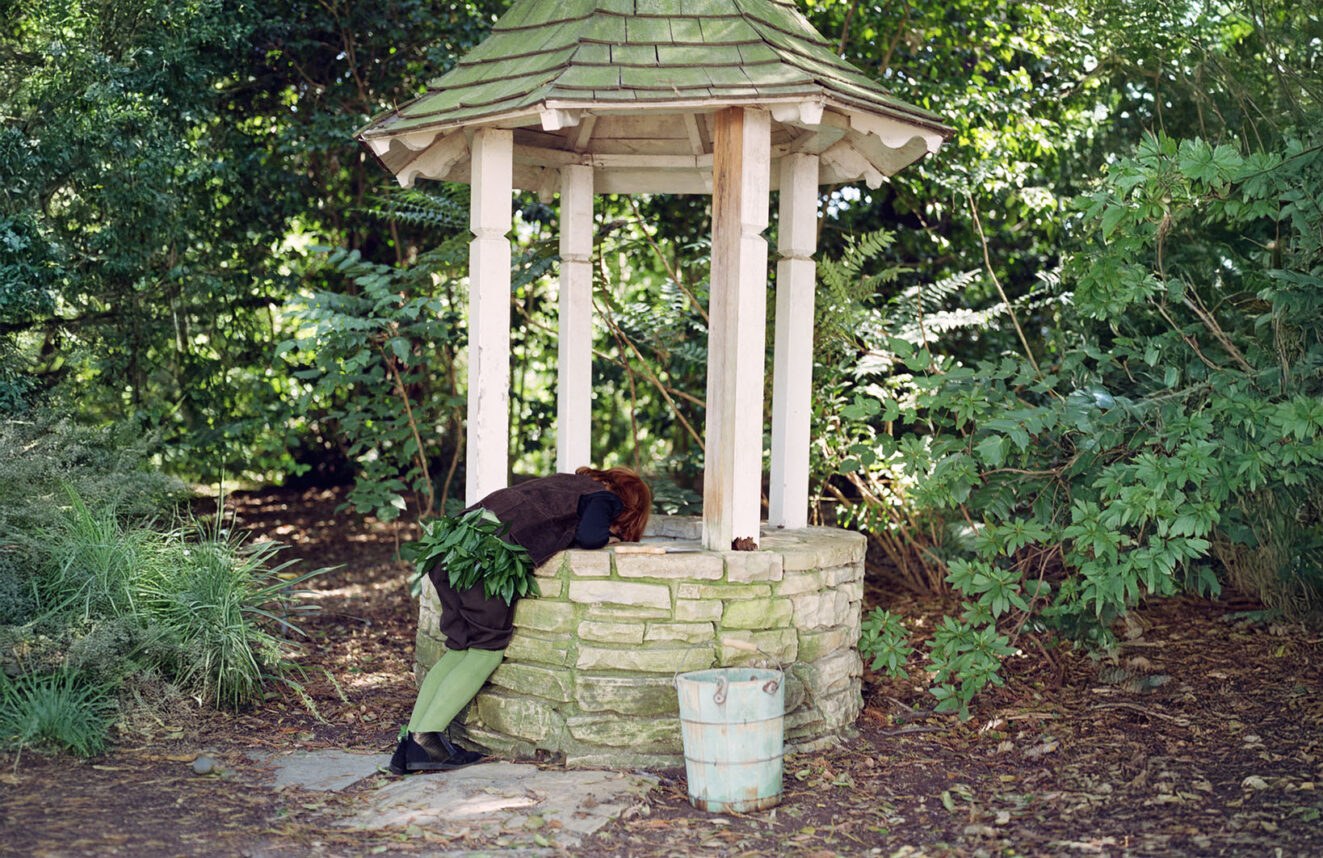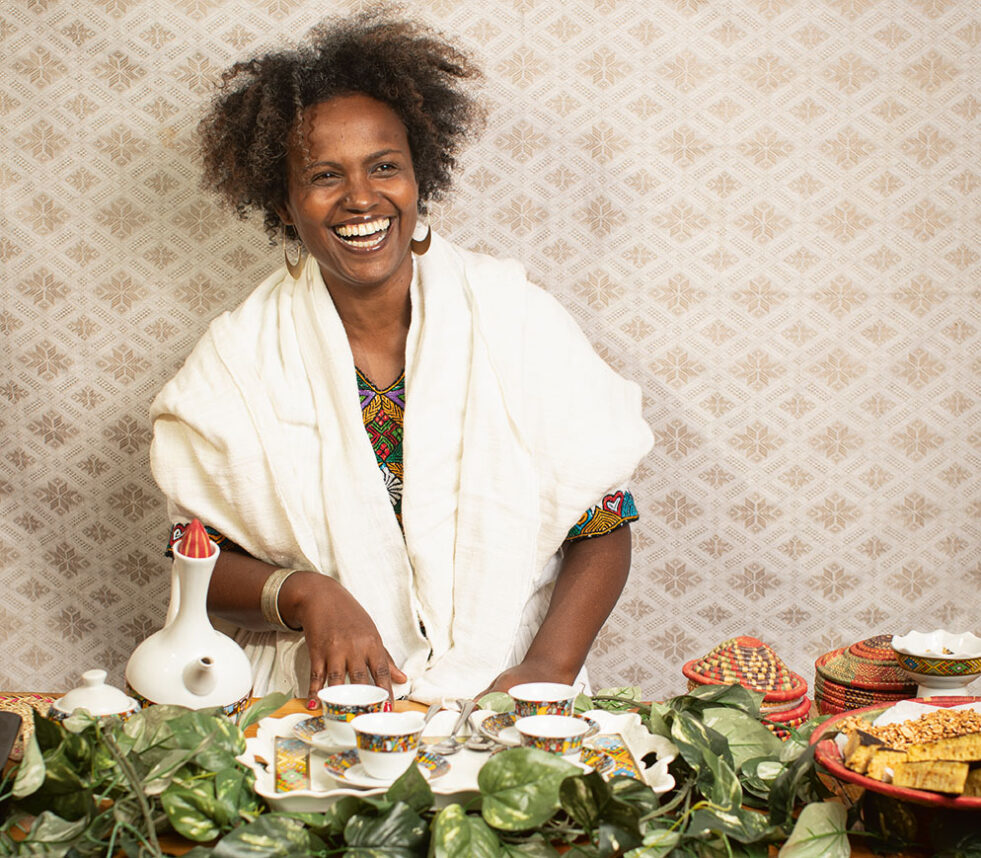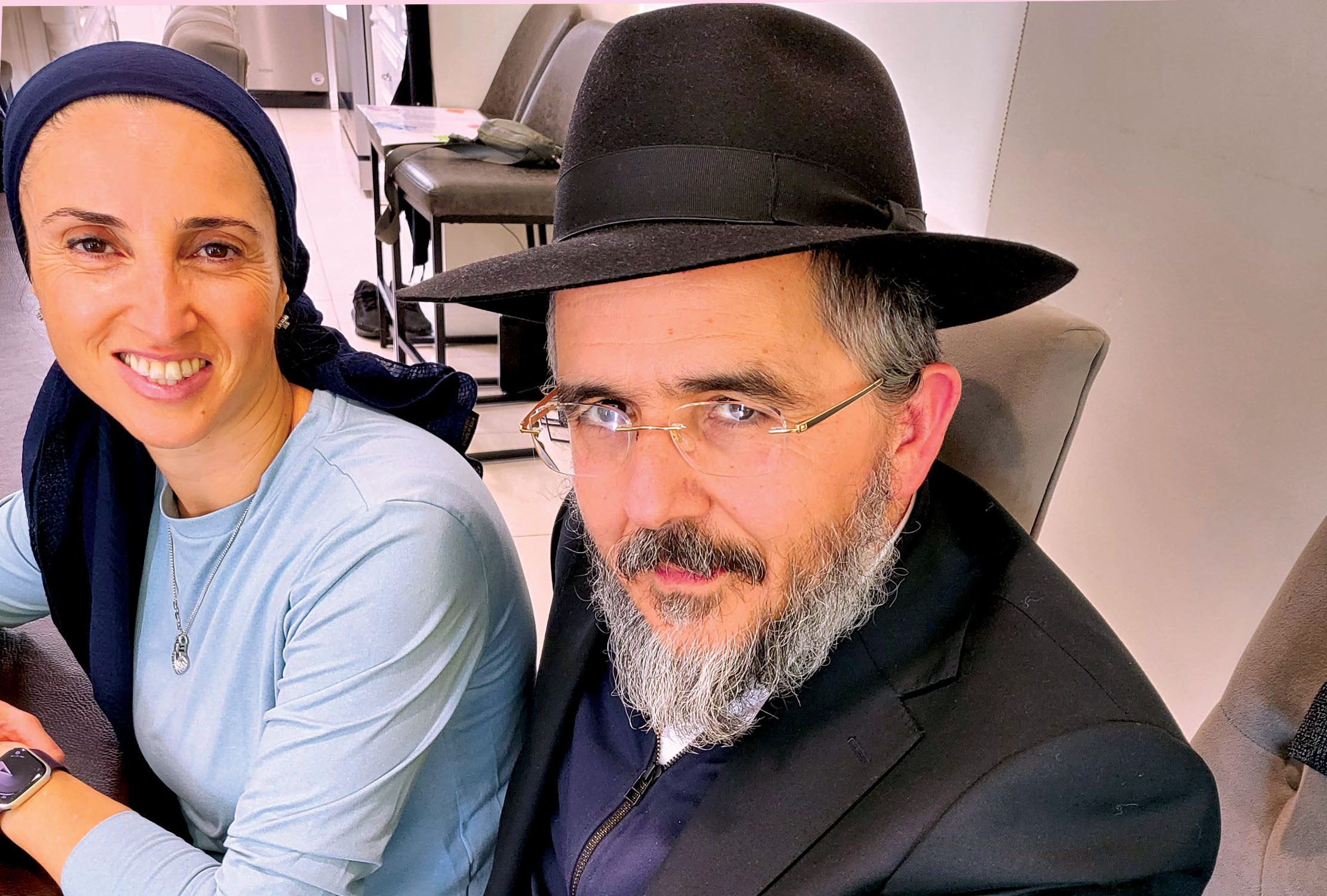
Rabbi Gadi Azoulay, the co-founder of Oseh Chessed, an organization dedicated to “helping Jewish families of all religious levels,” is modest when talking about his work. He explained that in 1987, when he was a teenager, his father, Rabbi Aron Azoulay, moved his Moroccan family of six children from Israel to the San Fernando Valley.
“Because my father was rabbi of a shul for so many years, I wanted to continue on the same path,” he told The Journal. “I was and I am a shul professional because of the nature of where I grew up and what I did. The same as if you were the son of a carpenter or a mechanic, you will be one, too.”
Sitting at his dining room table, Azoulay nodded toward the kitchen. “Twenty-five years ago,” he said, “I married this beautiful lady (Inbal). We have a nice family, 10 children, five boys, five girls.”
It was a Thursday when The Jewish Journal visited the Azoulay home, which was busy but relaxed. Outside in the driveway, a stream of men and women volunteers were quietly collecting cartons of Shabbat food they would deliver, in the Valley and the city. They would visit Jews in financial straits, the elderly, disabled and single parents who are having trouble making ends meet. This was the proverbial tip of the iceberg of how the Azoulays are enriching the lives of hungry, impoverished and ignored Jews. “We have an organization of charity, goodness, helping people with food packages, with life advice,” he said. His modesty extends to the story behind his family’s contribution to Jewish life across Los Angeles. Almost off-handedly, he explained that in 2012, the rabbi and his wife began a charity, Oseh Chessed (osehchessed.com). The name comes from a passage in Tehillim. “God is doing chessed. Emulating God is the best thing you can do. If He loves people, God loves people who love other creatures and do good for others.” His wife Inbal is naturally chessed-oriented, Azoulay said. “She is a huge source of chessed to many people in many neighborhoods across the Valley and the city.” Beaming with husbandly pride, he said “Inbal opened our organization.”
And their help with chessed has expanded to so many different areas. “We are learning as we go, what people need. In the beginning, we helped with food packages. It’s not just food for Shabbat but it also is a touch of love, of connection with them.
It was a personal experience that provided the impetus for Oseh Chessed. Yakov, the youngest of the Azoulay’s five sons, was diagnosed with cancer when he was a year and a half old. “While we were going through the process of healing, chemo and all of that, a large organization of chessed, High Life, approached us,” the Rabbi said. “They offered help, help that was humongous, overwhelming in so many areas – financial help, and a lot of love.”
Inbal was “blown away by their offers. We never had thought of — or had seen — anything like this before.”
High Life offered help with doctors and associated medical needs, financial aid every month, flights, parties, camps for the boys. New York State-based Camp Simcha is for children with cancer and blood disorders. “That has been special,” Azoulay said. “When they take him, they have special counseling for each child. They loved him and spoiled him to a degree I could not imagine.”
New York State-based Camp Simcha is for children with cancer and blood disorders. “That has been special,” Azoulay said. “When they take him, they have special counseling for each child. They loved him and spoiled him to a degree I could not imagine.”
The story has a happy ending. Yakov went to Camp Simcha for four or five years, and “Baruch HaShem, he is very healthy. He’s a very good boy. He was bar mitzvah six months ago.” Across the table, Rabbi Azoulay paused. The home grew quieter until he spoke: “Combine what we have been talking about with what I was saying in the beginning, about being the son of a rabbi and the rabbi of a shul [Shaarey Hahayim Congregation, Valley Village]. So I already have the experience of working with people, helping them,” he said. “But shul is more limited to one little congregation. Our help (via Oseh Chessed) goes further, helping different people in different areas, not just being the rabbi of one shul.”
At this point, shul is secondary, he said, citing Valley Village’s two dozen shuls. “The need of a shul is much less than the need of a chessed organization.” Rabbi Azoulay said he means to be available to all with a need in the city and the Valley, which is why he wanted his phone number, (818) 441-8534, made public.
Even with a plate as full as Azoulay’s, the largest slice of his day — eight or nine hours daily — is invested in Kollel. The rabbi learns with a partner in three separate sessions, until 10 p.m. daily.
“I want to improve my Torah knowledge in many areas,” he said. “That also is a source of being better, doing better in other areas of life because that is where we take our power and blessings. Goodness comes from that place.”
Fast Takes with Rabbi Azoulay
Jewish Journal: Do you have any unmet goals?
Rabbi Azoulay: We want to become a bigger organization so we can help more people. My wife always tells me we don’t have the person who will bring more people to us. They mostly know us only by word of mouth. We want to be as big as Tomchei Shabbos.
J.J.: If you could, how would you change your life?
RA: Of course, I would not. Sometimes our children say our home is too small because we have so many activities. We tell them this is a home people know.
J.J. What is your perfect Shabbat?
RA: When we can invite more people who want to share the warmth of Shabbat.








